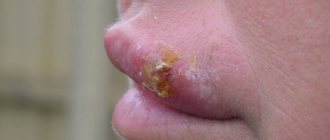Published: 10/11/2018 Updated: 06/23/2021
With prolonged exposure, stress triggers a cascade of physiological reactions that negatively affect health. The heart rate and breathing rate increase, and body temperature rises. All this can lead to problems with the heart and blood vessels, exacerbation of chronic diseases, and decreased immunity.
Learning to cope with the normal stresses of life will help you maintain strength and a positive attitude for productive work and communication with your loved ones. Below are recommendations to help you get rid of stress.
Genetics
Scientists have proven that stress resistance is transmitted to a person at the genetic level. Some can easily get out of any situation, while remaining almost completely calm. Others are thrown into panic even by the simplest situation. Such differences make it impossible for all people to use the same stress management techniques.
Some gene variants suggest that destructive consequences develop too quickly. People with this heredity should avoid irritants at all costs. The functioning of our nervous system depends entirely on the genes that we inherited from our ancestors.
Live without looking back
In order not to look for unnecessary pitfalls and not worry about anything at all, learn to live for today. Remember that our past is far behind us, those events will never touch us again. It is very important to realize the abstractness of those times and stop clinging to them.
The same advice applies to the future. The situation you imagine may never happen. You won't know until you try something. But if you constantly fear failure, failure and condemnation, you will never be able to happily exist in the present. What surrounds you every day is your life.
Day of rest
Do you have plenty of days off, but still feel tired and overwhelmed? This means you don’t know how to completely relax and let go of all problems. Give yourself a day of rest by following a few simple conditions.
- Change your usual weekend routine. At work, take the whole day off during the week, send your children to relatives or hire a nanny. Changes should also affect the style of relaxation. If you are used to spending weekends at home, go out of town. On the contrary, it will be useful for avid travelers to stay at home.
- Wake up not by an alarm clock, but when you want. After waking up, take a relaxing bath.
- Find some nice company for your morning coffee or tea. Remember, moments like these help you deal well with stress.
- Treat yourself to delicious food. You can either order it or cook it yourself.
Why do we panic
Any unpleasant, potentially dangerous or simply incomprehensible situation always causes severe anxiety, that is, stress. This is how it happened evolutionarily: negative thinking once helped humanity survive. Imagine an ancient monkey sitting in the bushes - and then there’s a rustling sound. What behavior model is safest for her? Positive - a ripe banana fell from a branch, you need to go look, or negative - a saber-tooth tiger is sneaking and you need to run? Pessimists survived more often.
Therefore, when something goes wrong, it is human nature to expect bad things. This is fine. Our psyche has a whole arsenal to combat anxiety and stress. For example, isolation, denial or rationalization of what is happening (searching for reasons why an unpleasant situation can be useful).
When anxiety is too strong, the deepest mechanism is activated - “fight or flight”. The body prepares for this reaction - tension is transferred to the muscles. But in modern life, as a rule, it is not clear who to hit and who to run away from. And then the only desire is to hide, but it doesn’t work. There is no immediate solution. The stress gets even worse.
As a result, due to severe and prolonged stress, panic sometimes begins. We are either on edge, or frantically rushing around the room, or falling into a stupor and crying, huddled in a corner. The more panicking people there are, the stronger the panic.
Don't invent problems
Many people tend to inflate a simple obstacle into a whole pile of insurmountable problems. As a result, they seek advice and help even for the simplest decisions. The development of self-esteem and independence suffers from this. Such people do not know how to set goals or go towards them. Inert and passive, for them life becomes dull and dull.
There is no need to try to find additional pitfalls in any situation. Excessive thinking leads to the fact that the brain begins to give you the most negative scenario for the development of the situation. As a result, you accept it as reality and are already set up for failure.
How to get out of a stressful situation
With severe stress, it seems that this state can consume you for a long time. Believe me, this is absolutely not true. There are several simple techniques to get rid of the unpleasant influence of irritants.
- Turn your thoughts into a positive direction. The cause of your stress needs to be presented in a funny, even ridiculous way.
- Take a break for 5 minutes. Move away from the voltage source for a short time. This will give you the opportunity to calmly breathe and pull yourself together.
- Don't raise your voice. No matter how much you want to scream, when you find yourself in a stressful situation, remain calm. You can scream and let off steam later, alone with yourself.
- Promise yourself a reward for endurance and patience. Waiting for a quick treat or something new will put you in a calmer and more peaceful mood.
Specialist help
If you understand that conventional methods do not help you, and you cannot help but worry about problems more than necessary, trust a psychologist. In this way, you will not only learn to control your emotions, but also part with a number of serious problems from the past that can ruin the future.
It is also worth checking the health of the endocrine system and the thyroid gland in general. A hormonal imbalance negatively affects the body's resistance to stress.
In addition, it is easy to check the level of protection of the body through DNA research. It will show how the main “conductors” of our emotional state - serotonin, dopamine and norepinephrine - work, and you will find out how susceptible your body is to stress and vulnerable to external stimuli, and most importantly, you will understand what to do about it.










